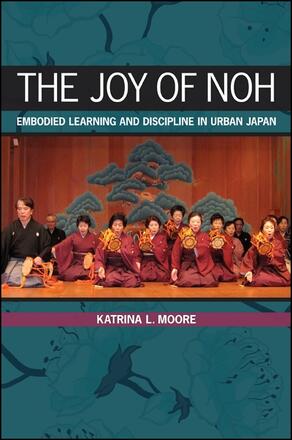
The Joy of Noh
Embodied Learning and Discipline in Urban Japan
Alternative formats available from:
Examines Japanese later life learners involved in Noh theater.
Description
Centered on questions of identity formation, selfhood, and the body, this ethnography examines the experiences of later life learners in Japan. The women profiled are amateur practitioners of Noh theater, learning the dance and chant essential to this classic art form. Using a combination of observational, interview, and experiential data, Katrina L. Moore discusses the relevance of these practices to the women's everyday lives. Later life learning activities have been heavily promoted in Japan as a means for an aging population to remain healthy. However, many Noh practitioners experience their practice as a means of self-actualization beyond the goal of healthy aging. Looking at daily experiences of training for and staging theatrical performances, Moore analyzes the way the body becomes the medium through which amateurs explore new states of self. The work provides a view of contemporary Noh that highlights the rarely acknowledged role of amateur performers.
Katrina L. Moore is Lecturer in Anthropology at the University of New South Wales in Australia.
Reviews
"With The Joy of Noh Moore has crafted a subtle, impressionistic ethnography of women who have found an opportunity to create meaningful lives through nō performance … It is a thoughtful and compelling contribution to a body of work that takes seriously the idea that the sociality to come is already emergent today." — Journal of Japanese Studies
"…an ideal text for instructors looking for a case study exploring aging, selfhood and the arts in contemporary Japan … Moore avoids burdening the reader with lengthy theoretical discussions or specialist jargon, making this accessible to a variety of readers." — Pacific Affairs
"Moore's ethnography provides valuable insight into the experiences of later-life learners in Japan as well as the continuing survival of the teaching methods of traditional Japanese schools in the twenty-first century." — Journal of the Royal Anthropological Institute